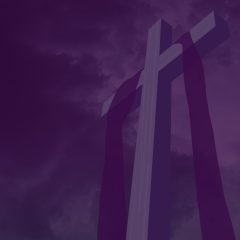November 30
Owen Augustine
The night is far gone; the day is near.
Let us then throw offthe works of darkness and put on the armor of light. Romans 13:12
My grandparent’s old Indiana home was nestled in the woods. Not the middle-of-nowhere woods you’d find in the countryside but wooded enough where the sky above had but a sliver of the glow from the city lights. Whenever I visited, I was reminded of how dark true darkness could be. The kind of dark that penetrates your eyes, blankets your skin, makes you shuffle inch by inch on your way to the door. That leaves you feeling frightened, vulnerable, helpless. And we experience this darkness daily. Whether it be warfare, racial inequity, a tainted relationship or a loss, our lives are constantly encompassed by the shadows. At points we feel so lost and defeated that we simply cannot move forward. So, where do we turn? How are we to traverse through the works of darkness? For that, we look to the light.
God is our armor of light, a light that never flickers or wanes or dies. A light that shines brighter the further we stray from its source. When we accept God as our true light, the “works of darkness” carry no merit, assert no jurisdiction over our lives. Like roaches to a bulb, they scatter and hide.
So then, with this reassurance, we are called to spread God’s grace, to don the armor of light and serve one another as a beacon for love, for kindness, and for compassion. Darkness and suffering will always exist; it’s a reality we must accept. However, by the love of God and by our acts of service through Him, the darkness can be kept at bay and the light will always win.
So, the next time you attend worship and see the eternal flame dancing at the altar, remember God’s undying light and the promise of protection and love through Him.
God of deliverance, lead our lives with growth and understanding so that we may turn to you in the face of darkness and appreciate your acts of kindness and compassion though your children on Earth. Amen.
